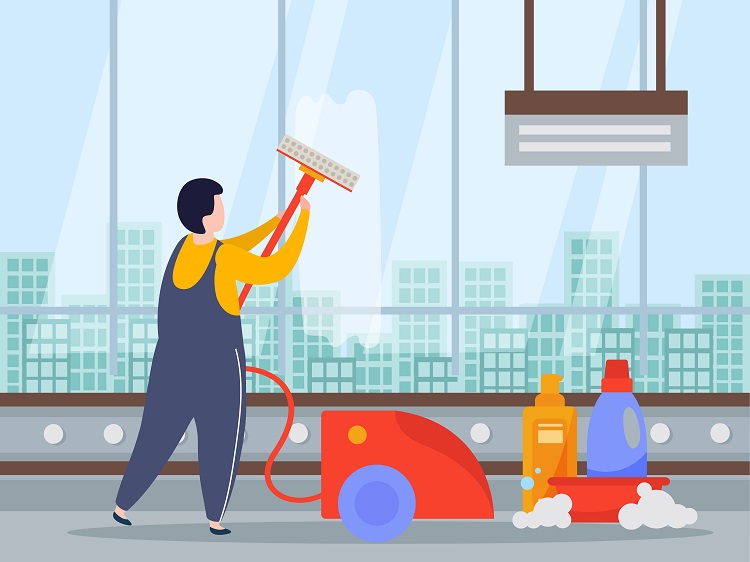Maintaining a clean and secure building relies heavily on the efforts of Janitorial Work. However, there is always the risk of harm on the job. Slips, accidents, and falls, as well as exposure to dangerous chemicals and musculoskeletal injuries, are all potential hazards for janitors.
The Importance of Safety in Janitorial Work
The Bureau of Labor Statistics reports that in 2020, janitors and cleaners had a rate of 9.7 per 10,000 workers for nonfatal occupational accidents and illnesses. This indicates that janitors have almost three times the risk of suffering a work-related injury as the typical worker.
Proper Training and Education
Training and instruction for janitors is one of the greatest strategies to reduce injuries on the job. The curriculum for this education must include a wide range of subjects, such as:
- Hazard Identification
- Safe Equipment Usage
- Chemical Handling
- Ergonomics
Hazard Identification
Employees should be taught to recognize potential dangers on the job. Things like wet flooring, live wires, and chemical spills fall under this category.
Safe Equipment Usage
Any employees need thorough training on how to properly operate any machinery. This includes items like ladders, floors, and cleaning equipment like household chemicals.
Chemical Handling
Workers need to be educated on how to properly handle potentially harmful substances. Personal protection equipment (PPE), correct disposal of dangerous chemicals, and reading and understanding chemical labels are all part of this.
Ergonomics
Injury at work may be avoided by providing workers with training in ergonomics. Safely lifting large items, using tools, and taking breaks are all part of this.
Providing Adequate Personal Protective Equipment
Janitors need to have the proper personal protective equipment (PPE) to avoid injury on the job. Gloves, nonslip shoes, goggles, and masks are all part of this category.
- Gloves
Hands should be protected against injuries like cuts and punctures as well as chemicals by wearing gloves.
- Slip-Resistant Footwear
In order to avoid slips, trips, and falls, slip-resistant shoes should be worn.
- Eye Protection
Wearing eye protection helps keep particles of dirt, chemicals, and dust from entering the eyes.
- Respiratory Protection
When dealing with potentially harmful substances or in unventilated spaces, it is important to always wear respiratory protection.
- Regular Maintenance and Inspection
Maintaining and inspecting machinery on a regular basis is essential for ensuring that it is in a secure operating state.
Encouraging a Culture of Safety
Injuries in the cleaning industry can come down if a culture of safety among workers. To achieve this, you can:
- Open Communication
Promoting frank discussion of safety issues
- Safety Meetings
Having frequent meetings devoted to safety
- Recognition and Rewards
Appreciating and rewarding employees who take safety seriously
End Note
By following these suggestions, you may assist in establishing a safe and healthy work environment for your janitorial crew.
Keep in mind that your safety is always number one. You may reduce the likelihood of workplace injuries and illnesses by investing in staff training, providing appropriate personal protective equipment (PPE), and instituting a general culture of safety.
Image by macrovector on Freepik





No Comment! Be the first one.